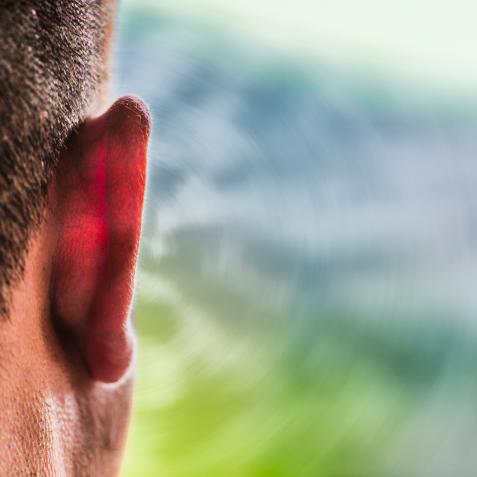
Getty Images
This Is How Little Blue Light It Takes to Disturb Your Sleep
Improved sleep quality can help improve your mood.
You've probably heard that you should shut off your screens a few hours before bed to get the optimal amount of shut-eye. Well, there's a reason for that: Screens produce blue light, and the way your brain reacts to blue light can mess with your sleep. But just how much blue light does it take to do damage? It's probably less than you'd think.
Insomnia Blues
Light, in general, can keep you awake — just try to sleep with all the lights on in your house and you'll see what we mean. But blue light does something unique. While regular light mostly activates the light-sensing rods and cones in your retina, blue light activates an additional type of light sensor known as melanopsin retinal ganglion cells. Those cells send signals directly to your brain's master clock, along with a bunch of other brain regions that help control your body's processes. Melanopsin cells don't seem to play much of a role in vision, which is why blue light can even affect the sleep schedules of blind people.
Your body's master clock regulates your circadian rhythm, the 24-hour cycle that many of your body processes follow. Importantly, one of those processes involves the production of melatonin, the hormone that makes you sleepy. Every night, your brain secretes melatonin about two hours before your usual bedtime. That is, if everything is working normally.
Blue light from TV and smartphone screens can throw that melatonin cycle out of whack. When melanopsin cells sense blue light, they send a signal to that master clock that basically says it's daytime — as in, it's not time to turn in for the night! And it turns out that even a small amount of blue light can have that effect.
How Much Is Too Much?
In a 2013 study, researchers asked 30 volunteers to hang out in a sleep lab for three nights each. There, they were exposed to two hours of light before bedtime, either from a standard incandescent lightbulb, a white compact fluorescent bulb, or a blue-enriched compact fluorescent bulb. Sure enough, when the volunteers were exposed to the blue light, their sleep wasn't as deep as it was when they were exposed to the other two lights.
But the light they were exposed to wasn't even that bright: It was around 30 lux, less than the average brightness of a family living room. Other studies have found that it doesn't even take that much blue light to have an effect on your melatonin: A pure blue LED light only takes 9 lux to suppress melatonin secretion by 25 percent.
That begs the question: How bright is the average screen? That depends; at about 9 inches from your face, an iPhone 6 and a MacBook Air both glow at about 60 lux, but an iPhone X blazes at more than 100 lux. When it comes to melanopic lux — the amount of blue light that actually affects your melanopsin cells — most smartphones are bright enough to shift your sleep schedule by an hour or more.
So what should you do to keep your sleep schedule on track? Well, if you don't want to put your devices away two hours before bedtime, there's another option: blue-light-blocking glasses. In a 2009 study, people who wore blue-blocking lenses for three hours before bedtime over two weeks experienced improved sleep quality and an improvement in mood.
This article first appeared on Curiosity.com.


















